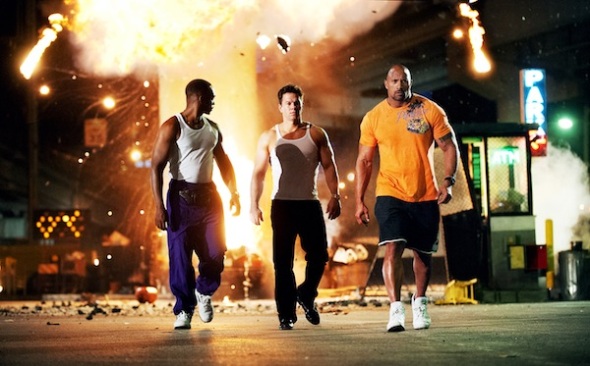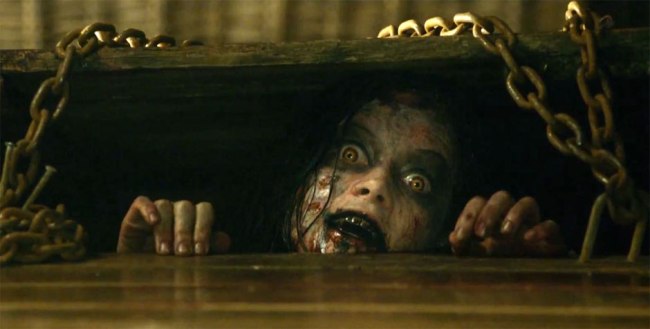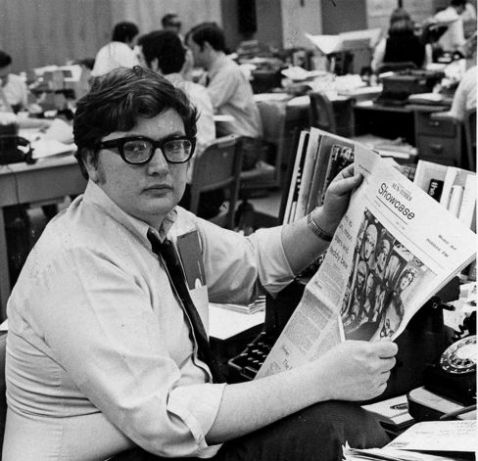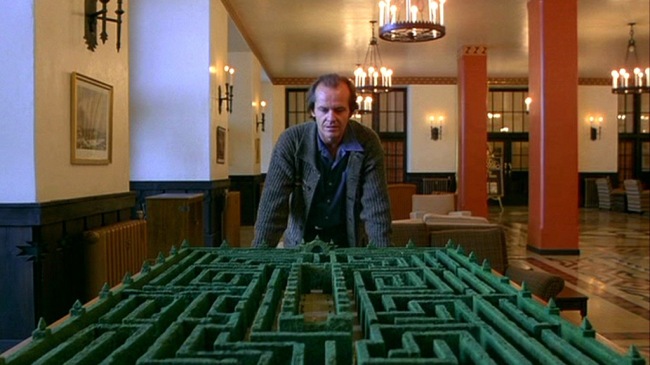If you’re looking for an easy way to get movie fans riled up, simply bring up the work of Michael Bay. Even as you read this sentence, it’s likely that his name alone has evoked a visceral reaction. Depending on your mentality he’s either the unlikely auteur of high-octane classics (The Rock, Bad Boys), a hack responsible for headache-inducing disasters (Pearl Harbor, Transformers 2), or a strange hybrid of the two (Armageddon).
In any case, no other director comes close to capturing America at its gaudiest and most excessive. In the world of Michael Bay, strip clubs and Ferraris are as patriotic as baseball and apple pie; if he’s not lovingly depicting the American flag blowing in the wind, he’s capturing the finer details of a Humvee driving through an explosion. There isn’t a hint of irony in a Bay production – if there’s a slow-motion shot set to an Aerosmith song, you’re meant to feel it.
This is what makes his new film, Pain & Gain, a difficult movie to cipher. Based on the true story of a kidnapping and extortion plot gone horribly wrong, it can easily be seen as the biggest, dumbest, most debaucherous portrait ever of big, dumb debauchery. What’s unclear is just how deep Bay is in on his own joke.
The plot involves Mark Wahlberg, Anthony Mackie, and Dwayne “The Rock” Johnson as a trio of Miami bodybuilders who devise a plan to rob a wealthy entrepreneur (Tony Shaloub). Naturally, things begin to go haywire from the very beginning. What follows is an epic of bad-taste involving murder, materialism, cocaine, pornographers, speed boats, sexism, steroids, chainsaws, and just about every instance of amoral behavior imaginable.
It’s difficult to say whether this tasteless display of excess is intended to mirror the themes of the story or if it’s just the director pushing his natural instincts to farcical extremes. Screenwriters Christopher Markus & Stephen McFeely clearly intend this to be a caustic portrait of the delusion behind the American dream. Wahlberg and co. have no qualms about resorting to increasingly perverse methods to obtain their goals; so long as a nice house and a fast car are your rewards, you are justified. Under the lens of The Coen Brothers or David Fincher, this could have been a biting piece of satire. What Bay gives us, however, might actually be more compelling – an authentic manifestation of the mentality behind its characters.
If there’s one clear predecessor to Pain & Gain, it’s Brian DePalma’s Scarface. In addition to the Miami setting and common traits of fast cars, cocaine, and chainsaws, both are technically proficient films about the rise and fall of deluded people in pursuit of tawdry dreams; both teeter between high-energy entertainment and being stimulating to the point of tedium; both may or may not be intentionally funny; both may come to be embraced by the people they’re intended to criticize. Most importantly, when both are being shown back-to-back on Spike TV in the future, they’ll serve as valuable time-capsules to the eras in which they were made.



